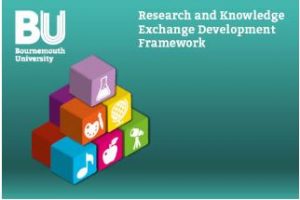Support and skills development for early career researchers at BU
The BU Early Career Researcher (ECR) Network is designed to support early career researchers and PGRs at BU, offering general advice and support as well as tailored workshops for skills training and career development.
The network also provides an opportunity to network and form connections – creating a community in which expertise can be shared, and collaborative working encouraged.
It is open to all who identify as being in the early stages of their research career – whether you’re a Postgraduate Researcher, newly-appointed academic, or you’re returning to research.
The network meets monthly, with events and networking opportunities. Upcoming workshops will cover academic publishing, public engagement and impact, and pay and promotion – as well as regular drop-in surgeries where you can pop in for a chat or discuss particular concerns.
The first ECR Network event of the academic year takes place on Wednesday 28 September, with a welcome and surgery session.
There is also a dedicated Brightspace community to share ideas, ask questions and access support and resources.
The ECR network is coordinated by two academic leads, Dr Sam Goodman (FMC) and Professor Ann Hemingway (HSS), and is supported by Research Development and Support (RDS).
Dr Goodman said: “The BU Early Career Researcher Network is a great way to connect with other ECRs from across the university, learn new skills and get access to mentoring, coaching and career development in a crucial phase in your career.
“We cover all the issues facing researchers that we can, from academic subjects like how to publish, how to engage the public and develop impact, through to how to deal with work/life balance and managing imposter syndrome. However, the ECR Network is driven by its members – if there is a topic you need impartial help or guidance with, then this is the forum in which to raise it.”
You can find out more about the ECR network and see the full schedule of events for 2022/23 on the ECR Network page.
If you’d like to join the network, or you have any questions, please contact: RKEDF@bournemouth.ac.uk















 Dr. Ashraf cited on ‘Modest Fashion’ in The Guardian
Dr. Ashraf cited on ‘Modest Fashion’ in The Guardian NIHR-funded research launches website
NIHR-funded research launches website Academics write for newspaper in Nepal
Academics write for newspaper in Nepal New paper published on disability in women & girls
New paper published on disability in women & girls MSCA Postdoctoral Fellowships 2025 Call
MSCA Postdoctoral Fellowships 2025 Call ERC Advanced Grant 2025 Webinar
ERC Advanced Grant 2025 Webinar Horizon Europe Work Programme 2025 Published
Horizon Europe Work Programme 2025 Published Horizon Europe 2025 Work Programme pre-Published
Horizon Europe 2025 Work Programme pre-Published Update on UKRO services
Update on UKRO services European research project exploring use of ‘virtual twins’ to better manage metabolic associated fatty liver disease
European research project exploring use of ‘virtual twins’ to better manage metabolic associated fatty liver disease